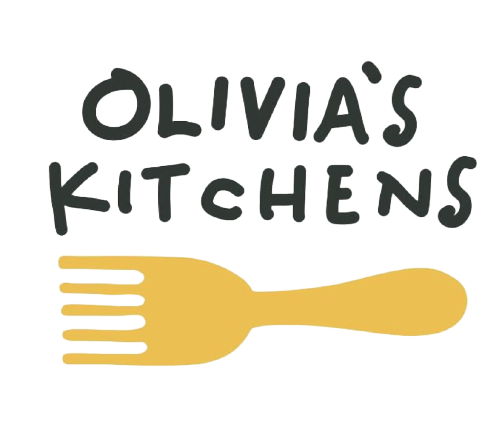In today’s fast-paced world, finding time to prepare nutritious and delicious meals for your family can be a challenge. Between work, school, and other responsibilities, cooking often takes a backseat. This is where hiring a personal chef can be a game-changer. A personal chef can not only save you time but also elevate your family’s dining experience. However, finding the right personal chef for your family requires careful consideration.
In this article, we will explore the key factors to keep in mind when hiring a personal chef to ensure a seamless and enjoyable culinary service partnership.
1. Define Your Culinary Needs and Preferences
Before embarking on the journey of hiring a personal chef, it’s essential to have a clear understanding of your family’s culinary needs and preferences. Take some time to think about:
Dietary Restrictions and Preferences
Make a list of any dietary restrictions or preferences your family members have. Whether it’s food allergies, religious dietary guidelines, or a preference for organic and locally-sourced ingredients, these factors will play a crucial role in your chef selection process.
Meal Frequency
Determine how often you want the personal chef to cook for your family. Some families opt for daily meal preparation, while others may prefer a few meals a week or even just special occasions.
Cuisine Preferences
Consider the types of cuisines your family enjoys. Are you looking for a chef who specializes in a specific cuisine, such as Italian, Thai, or Mexican? Or do you want someone with a diverse repertoire who can create a variety of dishes?
Meal Goals
What are your goals for hiring a personal chef? Are you primarily looking for convenience and time-saving, or are you hoping to explore new culinary experiences and improve your family’s overall diet?
2. Budget Considerations
Hiring a personal chef can be an investment in your family’s well-being and dining experience, but it’s essential to establish a budget upfront. Personal chef services can vary significantly in cost, depending on factors like location, the chef’s experience, and the complexity of the meals. Here’s what to keep in mind:
Hourly Rate vs. Fixed Fee
Some personal chefs charge an hourly rate, while others offer fixed pricing for specific services or meal packages. Consider which pricing structure aligns better with your budget and needs.
Additional Costs
Inquire about any additional costs beyond the chef’s fee. This might include the cost of groceries, travel expenses, or special ingredients. Be sure to clarify how these expenses will be handled.
Payment Schedule
Discuss the payment schedule with potential chefs. Some may require an upfront deposit, while others may bill you weekly or monthly. Make sure the payment terms are clear and manageable for your family.
3. Credentials and Experience
The culinary skills and experience of your personal chef are critical factors that can significantly impact the quality of your meals. Consider the following aspects:
Culinary Training and Education
Ask about the chef’s culinary training and education. Many chefs have formal culinary degrees, while others may have learned their skills through apprenticeships or on-the-job experience. Ensure that their background aligns with your expectations.
Professional Experience
Inquire about the chef’s professional experience. How long have they been working as a personal chef, and do they have a track record of satisfied clients? Request references and reviews if available.
Specializations
Some chefs specialize in specific culinary niches, such as vegan or gluten-free cuisine. If you have unique dietary requirements or preferences, look for a chef with expertise in those areas.
Certification
Check if the chef holds any certifications, such as food safety or allergen awareness. These certifications demonstrate a commitment to safety and quality in food preparation.
4. Availability and Scheduling
It’s crucial to establish a clear schedule and availability expectations with your personal chef. Consider the following factors:
Meal Times
Discuss when you would like your meals prepared and served. Ensure that the chef’s schedule aligns with your family’s eating habits.
Flexibility
Life can be unpredictable, so it’s essential to have a chef who can accommodate changes in your schedule or special occasions. Ask about their flexibility and availability for last-minute requests.
Advance Planning
Some personal chefs require advanced notice to plan and shop for ingredients. Make sure you understand the lead time required for meal preparation and whether the chef can handle spontaneous requests.
Vacation and Time Off
Discuss how the chef handles their own vacation and time off. Will they provide alternative arrangements or meal plans during their absence?
5. Food Sourcing and Quality
The quality of ingredients used in your family’s meals is paramount. Inquire about the chef’s approach to sourcing and the quality of the ingredients they use:
Ingredient Sourcing
Ask where the chef sources their ingredients. Some chefs prioritize local and seasonal produce, while others may have access to specialty suppliers. Ensure their sourcing aligns with your preferences.
Freshness and Quality
Discuss the chef’s commitment to using fresh and high-quality ingredients. Fresh ingredients can significantly impact the flavor and nutritional value of your meals.
Dietary Considerations
If your family has specific dietary requirements, such as organic, vegetarian, or sustainably sourced ingredients, communicate these preferences to the chef and verify their ability to accommodate them.
6. Food Safety and Hygiene
The safety and hygiene of your family’s meals should be a top priority. Ensure that your personal chef follows best practices in food safety:
Food Handling Certification
Confirm that the chef has completed a food safety certification program. This certification ensures that they are knowledgeable about safe food handling practices.
Kitchen Cleanliness
Visit the chef’s kitchen or workspace to assess its cleanliness and organization. A clean kitchen is essential for food safety and overall hygiene.
Allergen Awareness
If anyone in your family has food allergies, discuss the chef’s procedures for preventing cross-contamination and ensuring allergen-free meals.
7. Communication and Collaboration
Effective communication is key to a successful partnership with your personal chef. Consider the following communication factors:
Menu Planning
Discuss how menu planning will work. Will you collaborate with the chef to create meal plans, or will they take full control of the menu? Find a balance that works for your family.
Feedback and Adjustments
Establish a feedback loop where you can provide input on the meals and request adjustments. A good personal chef will welcome feedback and make improvements accordingly.
Dietary Changes
If your family’s dietary needs change over time, make sure the chef can adapt and accommodate these changes.
Communication Channels
Determine the preferred communication channels between you and the chef. Whether it’s phone calls, emails, or messaging apps, choose a method that ensures easy and timely communication.
8. Trial Meals and Tastings
Before committing to a long-term partnership, consider arranging trial meals or tastings with potential chefs. This allows you to assess their culinary skills and whether their cooking style aligns with your preferences.
Tasting Session
Ask if the chef offers tasting sessions where they can prepare a sample meal for your family. This is an excellent opportunity to evaluate their cooking techniques and flavor profiles.
Trial Period
Consider starting with a short trial period before entering into a long-term agreement. This allows you to assess the compatibility of your family’s preferences with the chef’s offerings.
9. Contract and Terms of Service
A clear and detailed contract is essential to protect both parties’ interests in the personal chef-client relationship. Be sure to review and discuss the contract thoroughly before signing.
Services Included
The contract should outline the specific services included, such as meal preparation, grocery shopping, and cleanup. Ensure that all your expectations are covered in the agreement.
Pricing and Payment
Verify that the contract reflects the agreed-upon pricing structure, payment schedule, and any additional costs.
Cancellation Policy
Understand the chef’s cancellation policy in case you need to modify or terminate the arrangement. A fair and reasonable cancellation policy is important.
Confidentiality
Discuss and include a confidentiality clause in the contract to protect your family’s privacy, especially if the chef will be working closely with you in your home.
10. Trust Your Instincts
Ultimately, the decision to hire a personal chef for your family should feel right. Trust your instincts and choose a chef with whom you have a good rapport and sense of trust.
Gut Feeling
Pay attention to your gut feeling during interviews and tastings. Do you feel comfortable with the chef, and do they seem genuinely passionate about their work?
References and Reviews
Check references and read online reviews to gather insights from other clients who have worked with the chef. Positive feedback can provide additional confidence in your choice.
Conclusion
Hiring a personal chef for your family can transform your dining experience and free up valuable time. By carefully considering your culinary needs and preferences, budget, chef’s credentials, availability, food quality, safety measures, communication, trial meals, contract terms, and trusting your instincts, you can make an informed decision that leads to a rewarding culinary partnership. Remember that finding the right personal chef is an investment in both your family’s well-being and the enjoyment of delicious, professionally prepared meals.






